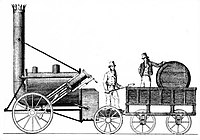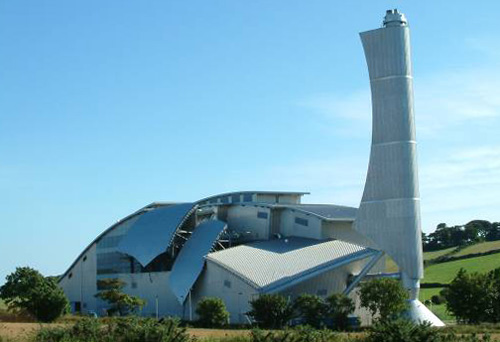Right now, I am fixated by the prospect of an intimately connected world. Not just connected, but also transparent, and all of that information broadly available so that reprocessors can connect waste generators with manufacturers.
This might seem a little esoteric, but it can be brought home in the context of specialty metals.
But before we get to specialty metals, consider metals in general. Their recycling is generally pretty poor. The figure below is from a great paper in Science magazine called Challenges in Metal Recycling (subscription required). If you don't want to pay for a subscription, much of the information in the article is in a UNEP report "Recycling rates of metals" (including a version of the figure below)
 |
| Recycling rates of metals, source Science |
Returning to specialty metals, part of the problem is straight out thermodynamics. You can't get around the laws of thermodynamics around extracting some metals from alloys.
But the real story is not really about thermodynamics. We are a long way away from butting against limits on recycling imposed by immutable laws. Instead, our limits are far more prosaic.
The report distills the challenge down to three opportunities:
The report distills the challenge down to three opportunities:
- Improved segregation and collection
- Improved recycling technology
- Improved design for readily separation and dismantling
Imagine if reprocessors put their efforts into the first two opportunities, and worked with designers and manufacturers to sort out the third.
Improved segregation and collection
Imagine a network that "knows" where materials are when they have reached the end of their life and scampers out to collect the materials before they are smashed up, mixed up, otherwise made uneconomic to recycle.
It's like a Geographic Information Sytem, but containing details of any number of components and their location. The Internet of Things, but drilled down to a very fine level. With the liberal use of sensors and some really clever programming in behind it, you could overcome the tricky logistics of diffuse materials.
Not down to each alloy of course, but aggregated up to a level where variation is insignificant. So maybe each definable component (say, down to a mobile phone, or a particular superalloyed component). That must be possible. In fact, it's probably already being done (or close to being done) for the aerospace industry to monitor components for their fatigue.
Knowing where components are, you can then look at their targeted dismantling to separate out particular metals, making their final processing simpler. The report cites studies which have found that targeted dismantling has the potential to "increase gold recovery from the current 26% to some 43%, tantalum up to 48%, and gallium up to 30%".
The opportunity for technology innovation in this space is awesome. You can imagine that the mining industry could play an immense role here, modifying the technologies they've deployed to extract metals from trace concentrations in ore.
To quote from the article:
There is little more to add. The development of technology is surely something that the developed world gets. The transition of research from lab to pilot to full scale technology is not an unknown. The shortages of specialty metals are also no secret.
This will happen when the right team is assembled, supported by the right venture capital, and underpinned by strong collection systems.
The final point where improved recovery of specialty metals will occur is in the design of items using the metals. That might involve substituting one metal for another, making components easier to take apart, or even designing components so that they automatically come apart when exposed to a particular environment.
All of this can be done. The limiting factor is information and interest.
It has been argued that having mandatory Extended Producer Responsibility (EPR) fixes this, as it makes the electronics manufacturer interested in the eventual e-waste problem. I'm not so convinced, as even under an EPR scheme, the management of waste is very quickly divorced from the design of new materials. Done right, it is useful as a motivator to improve collection. Done badly, tonnage targets can ruin the rare metals in favour of recovering the heavy components.
I think that, setting aside EPR, there is scope of a clever intermediary to exploit the information gap, to maintain a flow of information back and forth between the designer and the recycler. This, I think, the article suggests:
Not down to each alloy of course, but aggregated up to a level where variation is insignificant. So maybe each definable component (say, down to a mobile phone, or a particular superalloyed component). That must be possible. In fact, it's probably already being done (or close to being done) for the aerospace industry to monitor components for their fatigue.
Knowing where components are, you can then look at their targeted dismantling to separate out particular metals, making their final processing simpler. The report cites studies which have found that targeted dismantling has the potential to "increase gold recovery from the current 26% to some 43%, tantalum up to 48%, and gallium up to 30%".
Improved recycling technology
The opportunity for technology innovation in this space is awesome. You can imagine that the mining industry could play an immense role here, modifying the technologies they've deployed to extract metals from trace concentrations in ore.
 |
| Rare earth magnets at Hitachi Plant Technologies Ltd.'s Matsudo research laboratory, Japan. Source: Bloomberg |
To quote from the article:
It is not much of an exaggeration to say that we manufacture modern products with the best possible technologies we can devise, but generally recycle them with relatively basic approaches. This situation has evolved from a lack of incentives in many directions—little to no support for implementation of new recycling technologies, the unfavorable image of the scrap yard, the frequent specification of virgin material by manufacturers, and sheer lack of knowledge as to the elemental composition of modern products. It is true that recycling is often limited by unfavorable economics, but it is equally true that those economics reflect a lack of attention to design for recycling and a reluctance to invest in the improved separation and sorting equipment that has emerged within the past decade. It is time that corporations, universities, and governments work together to transform the state of today’s metal recycling by demonstrating the need for continuing research on improved technologies, the potential benefits of deployment of the improved technologies now available, and the promise suggested by regulatory and financial initiatives that speak to these challenges.
There is little more to add. The development of technology is surely something that the developed world gets. The transition of research from lab to pilot to full scale technology is not an unknown. The shortages of specialty metals are also no secret.
This will happen when the right team is assembled, supported by the right venture capital, and underpinned by strong collection systems.
Improved design for readily separation and dismantling
The final point where improved recovery of specialty metals will occur is in the design of items using the metals. That might involve substituting one metal for another, making components easier to take apart, or even designing components so that they automatically come apart when exposed to a particular environment.
All of this can be done. The limiting factor is information and interest.
It has been argued that having mandatory Extended Producer Responsibility (EPR) fixes this, as it makes the electronics manufacturer interested in the eventual e-waste problem. I'm not so convinced, as even under an EPR scheme, the management of waste is very quickly divorced from the design of new materials. Done right, it is useful as a motivator to improve collection. Done badly, tonnage targets can ruin the rare metals in favour of recovering the heavy components.
I think that, setting aside EPR, there is scope of a clever intermediary to exploit the information gap, to maintain a flow of information back and forth between the designer and the recycler. This, I think, the article suggests:
Ideally, an information feedback loop to materials scientists and designers would emphasize the consequences of complex designs on the recyclability of products, leading, for example, to a redesign of alloys to accommodate more scrap
So there is an opportunity in the recovery of specialty metals. I would suggest it is a very substantial opportunity. I'd also suggest that it matters little where the high-tech end of this is done, because the mass is relatively small and thus the transport component of the total cost not great.
You could imagine Perth (or Darwin) dedicating itself to becoming a rare earth recovery hotspot, having labour intensive disassembly in South-East Asia (in a properly controlled environment), and the extracted components shipped (flown!) here for final recovery.
You could imagine a firm developing and rolling out sensors, offering to pay for materials once they reach the end of their life as determined by the sensor. The added benefit is that you get scheduled maintenance and replacement of components.
You could also imagine all of this happening within the same firm, and that firm developing incredible expertise in the design of high tech equipment for recycling.
It is an immense opportunity, an opportunity for the 21st century. It is an opportunity that is already being developed in Japan.
Does anybody else want to play?







